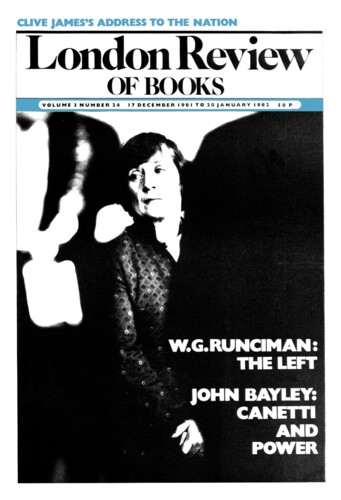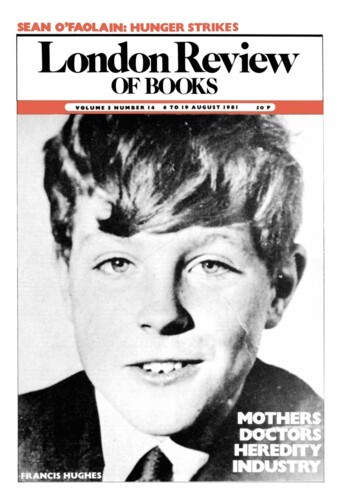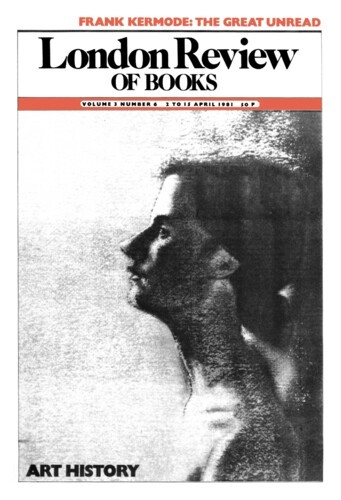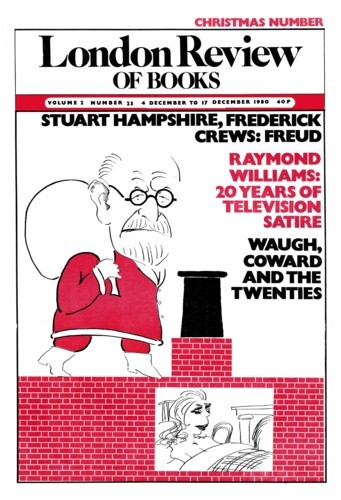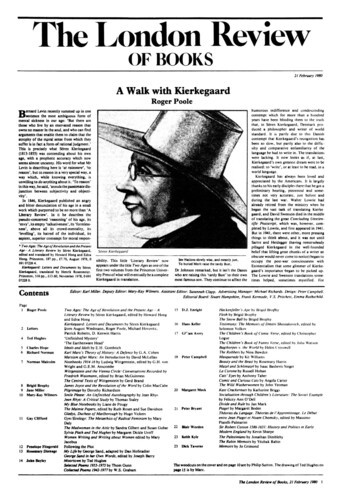Divorce me
Mary-Kay Wilmers, 17 December 1981
Twelve years ago Jonathan Gathorne-Hardy got divorced after ten years of marriage. In the unhappiness that followed he thought about himself and about society: would it break down too? In 1969, the year Mr Gathorne-Hardy got his decree nisi, there were 60,000 divorces in Britain: in 1980 there were 150,000. ‘During the last century of the Roman Empire, as a great civilisation collapsed, a raging epidemic of divorces roared unchecked.’ A terrifying parallel? Seemingly not. ‘Even quite general knowledge about the past can have a calming effect,’ Gathorne-Hardy says and he should know because his knowledge is very general. ‘Roman culture’ was ‘too superficial to withstand the temptations that beset it’, and ‘the result was a moral collapse which we do not only not approach but can barely envisage.’ (The source for Gathorne-Hardy’s remarks about the Roman Empire is Jerome Carcopino’s Daily Life in Ancient Rome, published in translation by Routledge in 1941, when Carcopino was Minister of National Education in the Vichy Government.) What’s happening to us is much grander: a ‘vast reorganisation of the modern psyche’, a ‘profound change in human consciousness’.
